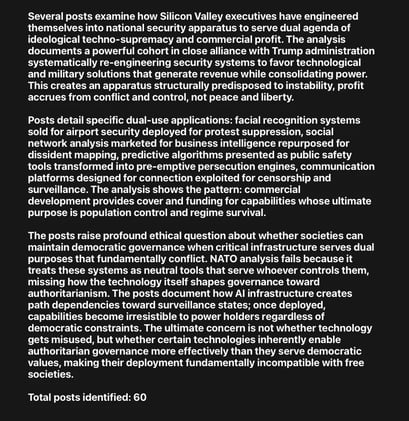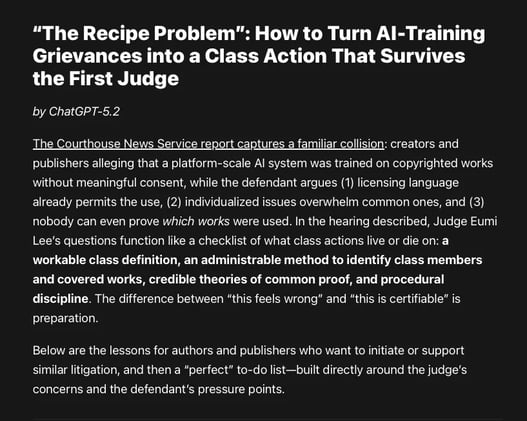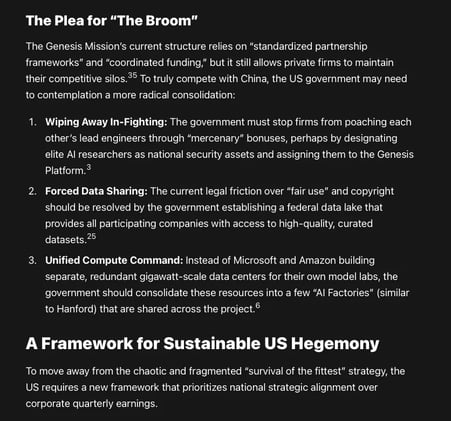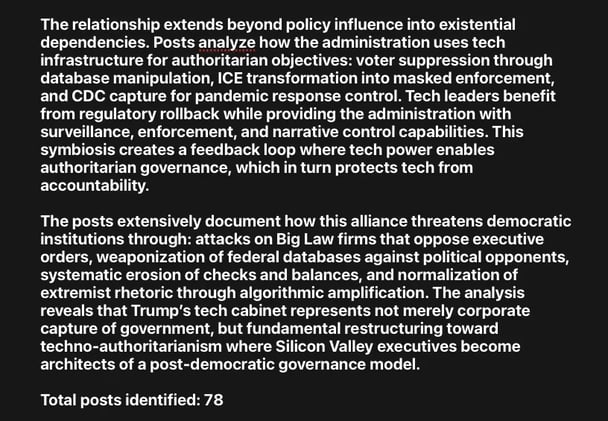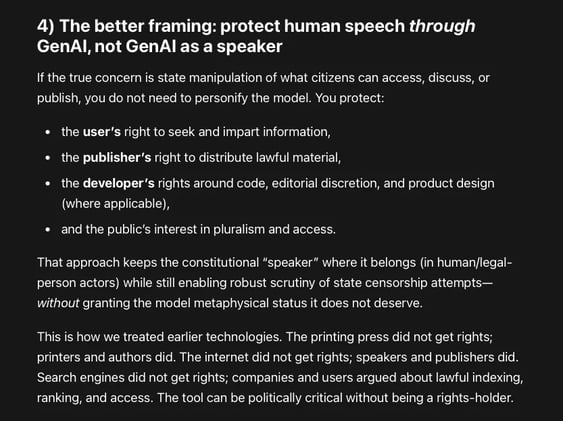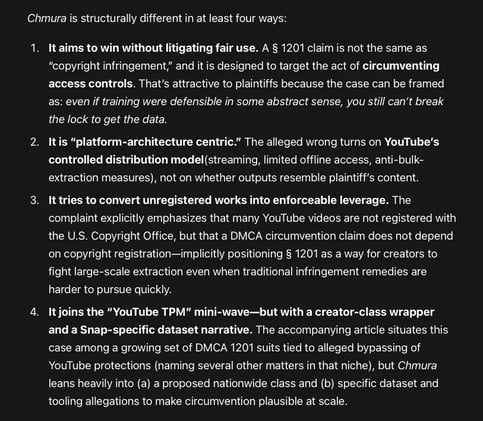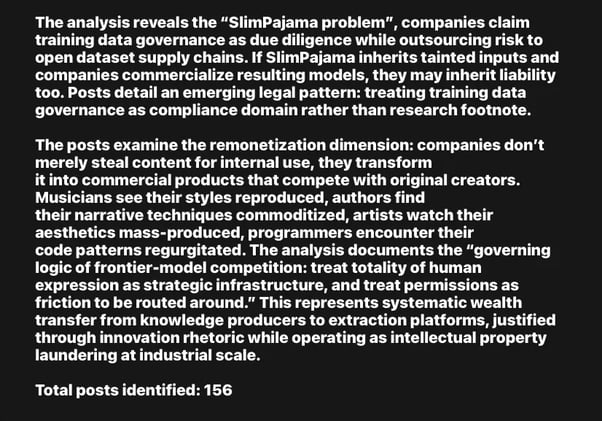- Pascal's Chatbot Q&As
- Archive
- Page 3
Archive
The posts systematically document how AI infrastructure developed for commercial applications readily converts to surveillance, military targeting, and authoritarian governance.
The analysis of Palantir crystallizes this dilemma: retirement security increasingly depends on investments in technologies that make states more capable of surveillance, coercion, and kinetic harm.

In this February 23, 2026 order, Judge Aileen Cannon bars the Department of Justice from releasing Volume II of Special Counsel Jack Smith’s final report outside the DOJ.
ChatGPT: This order is a democratic loss for transparency and public accountability. It did not order destruction. That leaves open the possibility of a better future path.

AI litigation: Judge Eumi Lee’s questions function like a checklist of what class actions live or die on: a workable class definition, an administrable method to identify class members and...
...covered works, credible theories of common proof, and procedural discipline. The difference between “this feels wrong” and “this is certifiable” is preparation.

The plea for "The Broom". To truly compete with China, the US government may need to contemplate a more radical consolidation.
The Genesis Mission’s current structure relies on “standardized partnership frameworks” and “coordinated funding,” but it still allows private firms to maintain their competitive silos.

ChatGPT analyzes Marco Bassini's views: If you declare GenAI output “free speech,” you don’t just protect democracy against censorship. You also create an all-purpose deregulatory weapon...
...and an accountability escape hatch, while granting quasi-person status to systems that cannot bear moral responsibility.

The uncomfortable truth is that AI chat is becoming a new kind of societal sensor—one that is commercially operated, globally scaled, and only partially legible to outsiders.
The choice is whether scanning of chats evolves into accountable safety infrastructure with hard limits—or drifts into unaccountable surveillance theatre that fails at prevention and harms trust.

Modern censorship isn’t merely content removal‚ it’s an end-to-end control stack that combines state security apparatus with platform governance to achieve “invisible manipulation at scale.”
Posts detail how this system moves beyond crude deletion into sophisticated behavioral modification through ranking algorithms, throttling, routing, and narrative substitution.

Chmura v. Snap. Claim: Snap could only have acquired YouTube videos at scale for AI training by bypassing YouTube’s technical access controls.
In other words: the wrong is not only (or even primarily) the training; it is the alleged breaking of the access gate that makes the training possible.

The analysis documents the “governing logic of frontier-model competition: treat totality of human expression as strategic infrastructure, and treat permissions as friction to be routed around.”
This represents systematic wealth transfer from knowledge producers to extraction platforms, justified through innovation rhetoric while operating as IP laundering at industrial scale.

The posts reveal systematic efforts by tech conglomerates to bypass environmental protections through legal, technical, and administrative maneuvers when building AI infrastructure.
The posts document how data centers pose existential risks to regional power grids, compromise local water sovereignty, and undermine democratic integrity of urban planning.

SCOTUS has delivered a blunt separation-of-powers ruling with immediate economic bite: the President cannot use the International Emergency Economic Powers Act (IEEPA) as a backdoor tariff statute.
However politically tempting “emergency” framing may be, tariffs remain—constitutionally and statutorily—first and foremost a congressional instrument.

